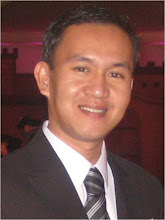Rationale:
In 2004, the first Provincial Peace Summit was held at Sarangani Provincial Capitol Compound, participated in by local officials, religious and traditional leaders, farmers, fisher folks, academe, law enforcers, women and youths and discussed issues and concern on peace and order of the province. This paved way to the crafting of Comprehensive Peace and Development Plan of the province.
Guided by the Section 17 of the Local Government Code of 1991, the province initiated its own Peace and Development Program called Kalinaw Sarangani Unit (KSU) which aims to promote and preserve a peaceful and livable Sarangani where people enjoy basic services and are actively involved in planning development and exercising governance.
KSU is implementing 3 Component Projects:
1. PEACE-Peace Education through Alliance-building
and Community Empowerment. It aims to empower members of the community by transforming them to become peace advocates. Activities under this project include:
· peace forum/dialogue in the barangay and municipal levels;
· peace consultations with key leaders;
· conduct of Culture of Peace (COP) trainings in schools and communities;
· training on mediation for the Lupong Tagapamayapa;
· tapping the council of elders among the Muslims and the Indigenous People to help in conflict resolution under their jurisdictions,;
· facilitating the formation of Barangay Peace Advocates; and
· Provision of Tindahan para sa Kalinaw project selected peoples organizations.
Peace and development highlights of the province are communicated through:
· Tingog sa Kalinaw aired over dxCP.
· Kalinawan, the official newsletter of Kalinaw Sarangani distributed quarterly; and
· Sarangani Province Official Website
. 2. MaP-Madaris for Peace: This component conducts the following:
· Assists the operation of 44 Madaris Centers (Arabic schools) for Muslim youth education in Arabic language and Islamic values where classes are held every Saturday and Sunday;
· Capacity enhancement trainings as well as Madrasah management seminars to 100 Asatidz (Madrasa facilitators/teachers). Classes are held on Saturdays and Sundays;
· Facilitation of Madaris intramurals, quiz bowls, and Qur’an reading competitions.
3. Partnership with GOP-UN ACT for Peace Programme
· Beginning June 2006, KSU complements A4P initiatives to the 18 Peace and Development Communities. Interventions are small infra projects such as water system, barangay health stations, day care center, drainage canal, and public toilets, livelihood assistance such as provision of farm animals, payao, baling, bamboo craft production, and small botika with sari-sari store.
4. Partnership with GEM (Growth with Equity in Mindanao)
With its aim to help in the poverty alleviation in Mindanao, GEM provides mostly infrastructure projects in the province such as construction of irrigation earth canal, box culverts, community center, public waiting sheds, solar dryer, road rehab, footbridge, overflow reinforced concrete pipe, concrete drainage canal, and trading center.
5. Partnership with Roxas Foundation and the Conrado Alcantara and Ladislawa Foundation
The project aims to expedite the resolutions of cases in the barangay for a speedy serving of justice to aggrieved parties and that community peace is achieved.
- Implementation of Barangay Justice for Peace Project in all the barangays of the province.
- The project trains volunteers (Barangay Justice Advocates-BJAs) from the community on counseling and mediation;
- BJAs provide free counseling and mediation to members of the community who are in conflict.








